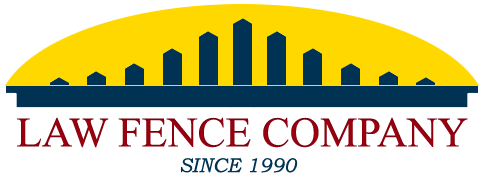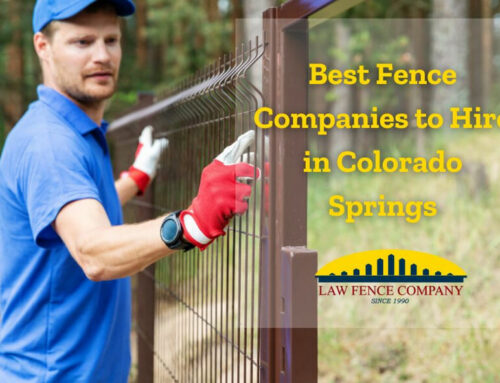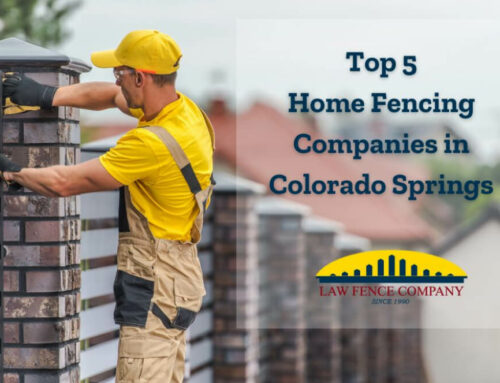Are you installing a fence in Colorado Springs? It’s crucial to navigate the maze of regulations and permits. This blog post will explore key factors to consider when installing a fence in Colorado Springs, ensuring you stay compliant with local requirements. By following proper regulations, you can avoid potential fines, delays, or even having to remove your newly installed fence.
We’ll provide valuable insights and guidance on how to file for the necessary permits and ensure a smooth and hassle-free fencing process. Stay tuned for expert advice on understanding and navigating the Colorado Springs fence regulations and permits.
Key Takeaways
- Understanding the specific regulations and permit requirements for fence installation in Colorado Springs is crucial to avoid legal issues and ensure compliance with local laws.
- Prioritize choosing the right fence height and materials based on the regulations to avoid potential fines or the need for costly adjustments.
- Regular maintenance and proper installation are essential for your fence’s longevity and effectiveness, contributing to your property’s overall value.
- Specialized fencing considerations, such as pool or agricultural fences, require additional attention to specific regulations and safety standards.
- Enhancing your property with a well-planned and compliant fence can add aesthetic appeal, privacy, and security while increasing the overall value of your home.
- Careful planning and budgeting for permit costs, materials, and installation can help you navigate the process efficiently and avoid unexpected expenses.
| Fence Aspects | Details |
| Location and Maximum Height | Fences or walls <7 feet allowed anywhere on property, with specific location and height conditions (e.g., not blocking access, max 4 feet height in front façade areas, restrictions in Sight Distance Line). |
| Measurement of Fence Height | Fence height measurement as per Subsection 7.6.204B. |
| Fence and Wall Materials | Includes masonry, wood, chain-link with inserts/slats. Prohibits tarps, plastic sheeting, barbed wire, razor wire, or electric shock fencing in certain cases (specific allowances for commercial, industrial, and agricultural uses). |
Overview of Fence Regulations
Permitting Process
To install a fence in Colorado Springs, it is essential to understand the permitting process. This involves navigating a step-by-step procedure to obtain the necessary permits. Gathering all the required documentation and meeting specific requirements for a successful application is essential. Applicants should know the potential timelines and fees associated with the permitting process.
Safety and Visibility
Safety and visibility are crucial considerations when installing a fence. Regulations dictate the height and materials used to ensure optimal safety. It is essential to adhere to these regulations to prevent accidents or hazards. Homeowners can explore options like transparent or slatted designs that enhance visibility while providing privacy.
Contacting Authorities
When seeking information on fence regulations and permits, it is essential to know who to contact. Relevant authorities include local government agencies or homeowner associations (HOAs). They can provide accurate assistance and guidance throughout the process. Online resources often provide contact information for quick access to relevant authorities.
Height Regulations
Fences in Colorado Springs have specific height restrictions depending on the area. Property owners must be aware of these regulations to avoid penalties or fines. Occasionally, exceptions or variances may apply based on property type or location. It is crucial to measure fence height correctly, especially when located near retaining walls.
According to regulations, fences exceeding six feet in height require permits from the RBD (Regional Building Department). At least eight feet apart, 12 inches is permitted for posts, poles, and finials. When situated within three feet of a retaining wall, height measurements consider the top of the fence relative to the finished grade at the bottom of the wall.
| Categories | Details |
|---|---|
| Permit Requirement | No permit required for fences up to 6 feet. |
| Height Limitation | Fences taller than 6 feet treated as accessory construction. |
| Preservation Areas | Fences in preservation areas have specific rules. |
| Property Line Construction | Fences can be constructed on property lines. |
| Accessory Construction | Taller fences require planning, engineering, and approval. |
| Local Regulations | Must comply with Land Use and Development code. |
| Community Impact | Fence style should harmonize with neighborhood. |
Data Source: Colorado Springs City Website
Fence Height Specifics
Proximity to Roads
It’s essential to consider the proximity of your fence to roads or public rights-of-way. The city has specific regulations to ensure safety and maintain a visually appealing environment.
Setback requirements play a significant role in determining how close you can install a fence near a road. These requirements vary based on the classification of the road. For example, if your property is adjacent to a local street, you may need to maintain a setback of 10 feet from the edge of the pavement.
Safety is another crucial consideration when installing fences near roads or highways. Fences mustn’t obstruct sightlines for drivers or pedestrians. This ensures everyone’s safety and prevents accidents caused by limited visibility.
Impact of Intersections
Fences near intersections requires special attention due to traffic flow concerns and visibility requirements. Colorado Springs has guidelines in place to ensure safe sightlines at intersections.
To maintain clear sightlines, fences should not exceed certain heights or be located within specific distances from an intersection. These regulations help prevent obstructions that impede drivers’ ability to see oncoming traffic and pedestrians.
These guidelines are crucial for maintaining traffic safety and preventing accidents at intersections throughout Colorado Springs.
HOA Considerations
Homeowner associations (HOAs) often have their own set of rules. Before installing a fence, homeowners must obtain approval from their respective HOAs.
HOA rules may dictate specific materials, colors, designs, and height limitations for fences within their jurisdiction. Homeowners need to familiarize themselves with these guidelines before beginning any fencing project.
Types of Fences and Materials
Allowed Fences
Colorado Springs has specific regulations regarding the fences allowed within the city. Identifying these permitted fence options is important to ensure compliance with local guidelines. Common fences that are typically allowed include:
- Chain-link fences: These are often used for security or containment purposes and are made of interwoven metal wires.
- Wood fences: Wooden fences provide a classic and natural look while offering privacy and security.
- Vinyl fences: Vinyl is a durable material that requires minimal maintenance, making it a popular choice for many homeowners.
- Wrought iron fences: These ornamental metal fences can add elegance and charm to any property.
When installing a fence in Colorado Springs, it is crucial to consider the materials, designs, and styles that comply with local regulations. Certain fences may be restricted or limited based on height or location.
Design Options
While adhering to Colorado Springs regulations, various design options are still available for your fence. It is possible to balance functionality, privacy, and visual appeal. Some creative design choices within the permitted guidelines include:
- Decorative elements: Adding decorative elements such as lattice panels or post caps can enhance the overall aesthetic appeal of your fence.
- Staining or painting: Applying a stain or paint can help customize your wooden fence’s appearance while protecting against weathering.
- Height variations: Incorporating different heights into your fence design can create visual interest and add dimension to your property.
Installation and Maintenance
Professional Contractors
Hiring professional contractors for fence installation in Colorado Springs offers several advantages. These experts bring knowledge and expertise to ensure compliance with local regulations. By selecting licensed and insured contractors, property owners can have peace of mind knowing that their fences will be installed correctly and meet all requirements.
Professional contractors are well-versed in the specific building codes and permit processes in Colorado Springs. They understand the importance of obtaining the proper permits before starting construction work. This knowledge helps prevent costly mistakes or violations that could result in fines or legal issues.
Professional contractors have experience working with various types of fences and materials. They can provide:
- Guidance on selecting the most suitable option for a property’s needs.
- Taking into account factors such as durability.
- Maintenance requirements.
- Aesthetic appeal.
Their expertise ensures that the chosen fence complies with regulations and meets the owner’s expectations.
Maintenance Requirements
Regular maintenance is crucial for fences in Colorado Springs to ensure their longevity and compliance with regulations. Property owners should prioritize cleaning, painting, and repairing tasks to keep their fences in optimal condition.
Cleaning is essential to remove dirt, debris, and mold buildup that can damage the fence over time. Regular inspections should be conducted to identify any signs of wear or damage that require immediate attention. Repairs should be addressed promptly to prevent further deterioration or safety hazards.
Painting or staining the fence periodically helps protect it from weather elements, preventing rotting or discoloration. It also enhances its appearance, adding value to the property.
Specialized Fencing Considerations
Pool Safety Guidelines
When installing a fence in Colorado Springs, it is crucial to be aware of the specific regulations related to pool safety. These guidelines are implemented to ensure the safety of individuals, especially children, around swimming pools.
One crucial requirement is the installation of pool enclosures. These enclosures must meet specifications, such as minimum height and maximum gap size between fence components. Gates used for pool access should have self-closing and self-latching mechanisms to prevent unauthorized entry.
Colorado Springs also emphasizes the importance of proper latches on pool gates. The latches should be high enough so young children cannot reach them easily. This helps reduce the risk of accidents and drowning incidents.
To prevent accidents and ensure compliance with pool safety guidelines, it is essential to adhere to these regulations when installing a fence around a pool in Colorado Springs.
Commercial Permits
For commercial properties in Colorado Springs, additional considerations come into play when obtaining fencing permits. Understanding any specific regulations or requirements that apply to commercial fencing is essential.
Compliance with zoning and land use regulations is crucial when installing a fence on commercial properties. Certain areas may have restrictions on fence height or materials used based on their zoning designation.
It is advisable to consult with local authorities or a professional fencing contractor familiar with Colorado Springs’ regulations before proceeding with any commercial fencing project. This ensures compliance with all necessary permits and avoids potential penalties or delays.
Temporary Construction Fencing
Temporary construction fencing requires regulations and permits in Colorado Springs. Specific guidelines must be followed when setting up temporary fences on construction sites.
These guidelines often include requirements for proper installation techniques, such as securely anchoring the temporary fence panels and ensuring stability throughout the construction process. Temporary fences should also be marked with warning signs or barricades for enhanced safety.
Adhering to these regulations is crucial to maintaining a safe construction site and preventing accidents or unauthorized access.
Enhancing Your Property
Decorative Ideas
Numerous decorative ideas comply with Colorado Springs regulations. These ideas can inspire and add visual appeal to your outdoor space. Consider exploring ornamental designs, patterns, colors, and materials that align with local guidelines. Incorporating decorative elements into your fence design can enhance curb appeal while adhering to regulations.
Landscaping Integration
Integrating your fence with landscaping features can create a cohesive look for your property. You have various options for achieving this integration, such as incorporating plants, shrubs, or trellises into the design of your fence. By strategically placing greenery along the perimeter of your fence, you can enhance privacy and aesthetics within the limits set by Colorado Springs regulations. This integration allows you to create an inviting and harmonious outdoor space.
Eco-Friendly Options
If you’re environmentally conscious and want to make sustainable choices for your fencing needs in Colorado Springs, eco-friendly options that align with local regulations are available. Consider using sustainable materials like bamboo or recycled materials when constructing your fence.
These choices reduce environmental impact and offer durability and longevity for your property. By opting for eco-friendly fences, you can contribute to a greener community while complying with the guidelines.
Compliance and Legalities
Drainage and Noise Regulations
When installing a fence in Colorado Springs, it is essential to consider the regulations related to drainage and noise. Guidelines must be followed to ensure proper water flow and avoid potential drainage issues. These guidelines address the importance of maintaining adequate water flow on your property and preventing any negative impacts on neighboring properties.
Noise-related regulations should be taken into account when selecting fence materials or designs. Choosing appropriate materials that minimize noise transmission through fences can help maintain a peaceful environment for yourself and your neighbors.
Property Line Disputes
Property line disputes are common issues during fence installation in Colorado Springs. It is crucial to prevent conflicts by conducting surveys to accurately determine property boundaries before beginning construction.
Clear communication with neighbors is also essential to avoid misunderstandings or disagreements regarding the placement of the fence. By taking these proactive steps, you can minimize the risk of property line disputes and maintain positive relationships with those around you.
Non-Compliance Consequences
Failure to comply with fence regulations in Colorado Springs can result in various consequences. Violating these regulations may lead to penalties, fines, or even legal actions being taken against you. It is essential to adhere to the guidelines set forth by local authorities to avoid costly consequences.
Understanding and following these regulations ensures compliance and maintains a harmonious community where everyone’s rights are respected.
Cost and Planning
Cost Factors
Several cost factors must be considered when planning a fence installation in Colorado Springs.
- Material Cost: Costs vary based on materials like wood, vinyl, aluminum, and chain-link, each having different price ranges.
- Labor Expenses: Professional installation adds to the cost but ensures proper setup and saves time.
- Permit Fees: Necessary for some fences in Colorado Springs, with associated costs depending on fence size and type.
- Maintenance Costs: Long-term expenses differ by material; wood fences require regular maintenance like staining or painting.
- Accurate Estimates: Multiple quotes from contractors or suppliers are crucial for budget adherence and choosing suitable materials and services.
Permitting for Repairs
Even if you’re only repairing or replacing an existing fence in Colorado Springs, it’s essential to understand the permitting requirements. In some cases, permits may still be necessary, depending on the extent of the repair work.
Following proper procedures when obtaining permits for repair projects is essential to avoid potential legal issues. While certain minor repairs may be exempted from permit requirements, it’s always best to check with local authorities or consult a professional before starting any repair work on your fence.
Conclusion
For property owners in Colorado Springs, understanding and complying with local fence regulations and permits is essential when installing or modifying fences. This encompasses fence height, materials, installation, maintenance, and specialized considerations to enhance property aesthetics and security.
The process requires staying informed about regulatory changes and often involves consulting with local experts to ensure all legal and practical requirements are met. Adherence to these guidelines ensures compliance and maximizes your property’s value and safety, making fencing a wise and beneficial choice.
Navigating Colorado Springs fence regulations and permits can be complex, but you don’t have to do it alone. At Law Fence, we specialize in understanding and adhering to local fencing regulations to ensure your project is compliant and enhances your property’s value. Whether you’re installing a new fence or modifying an existing one, our expert team is here to guide you through every step, from understanding setback requirements to selecting suitable materials. Don’t let regulations stall your fencing project. Contact LawFenceco.com today!




